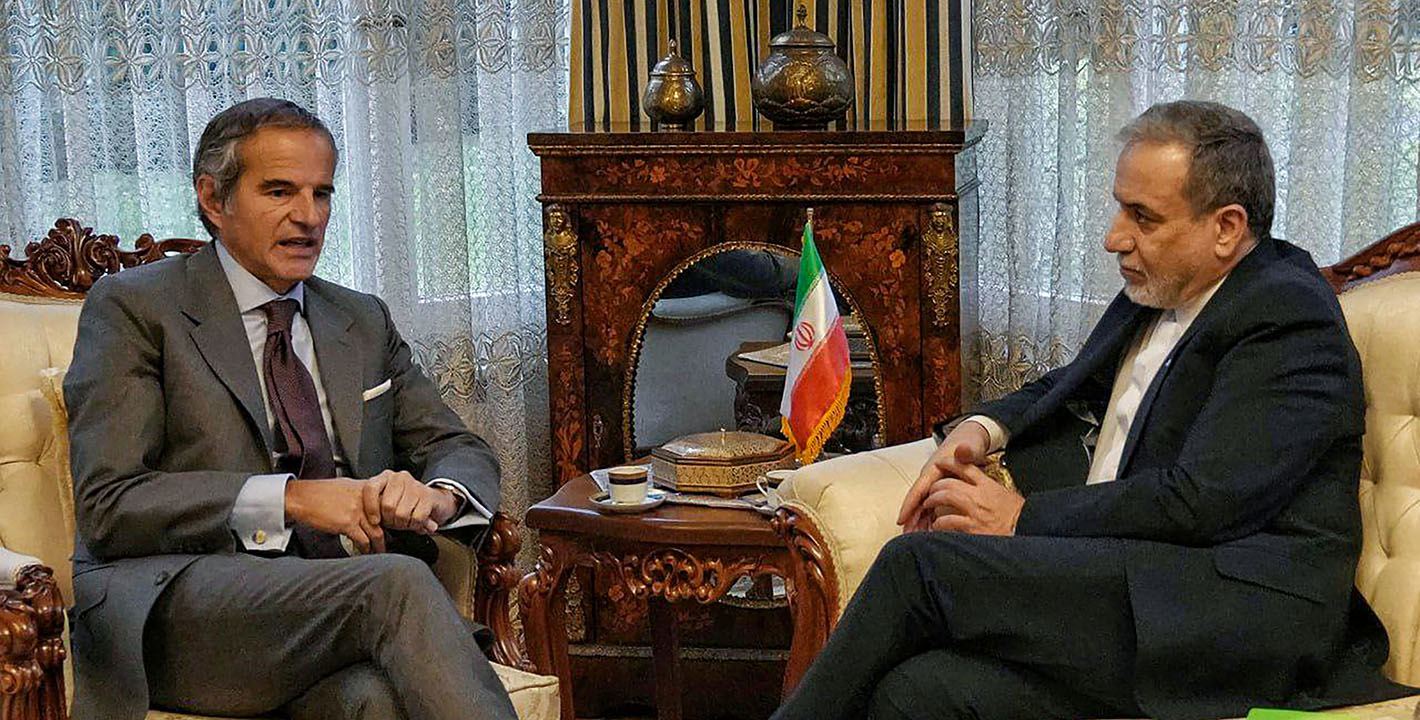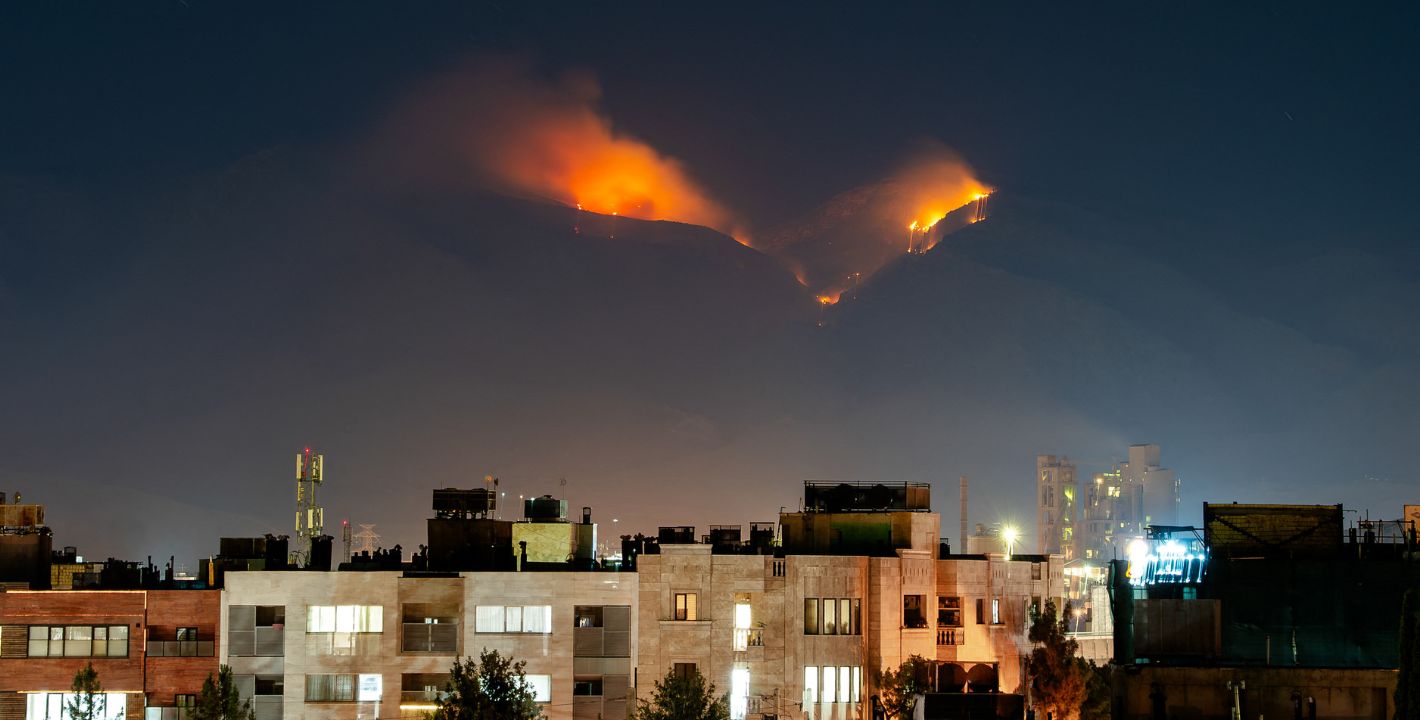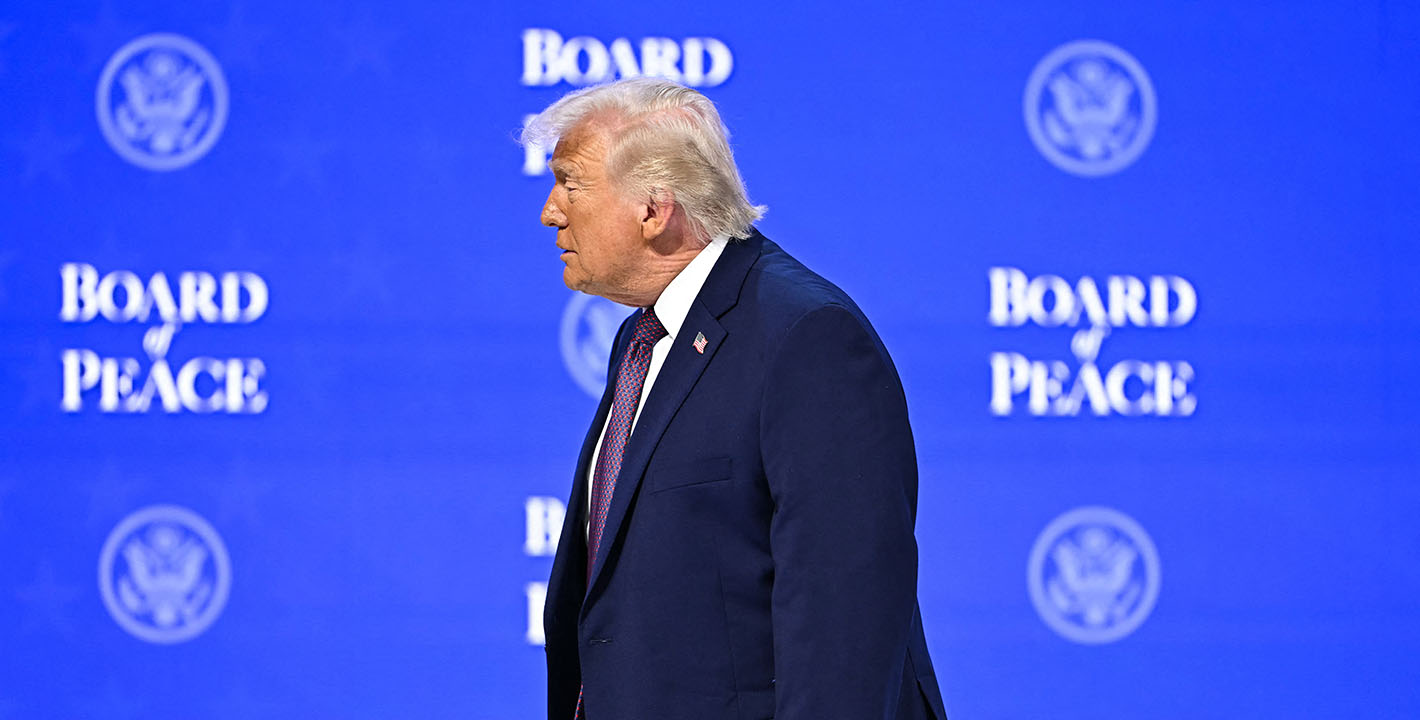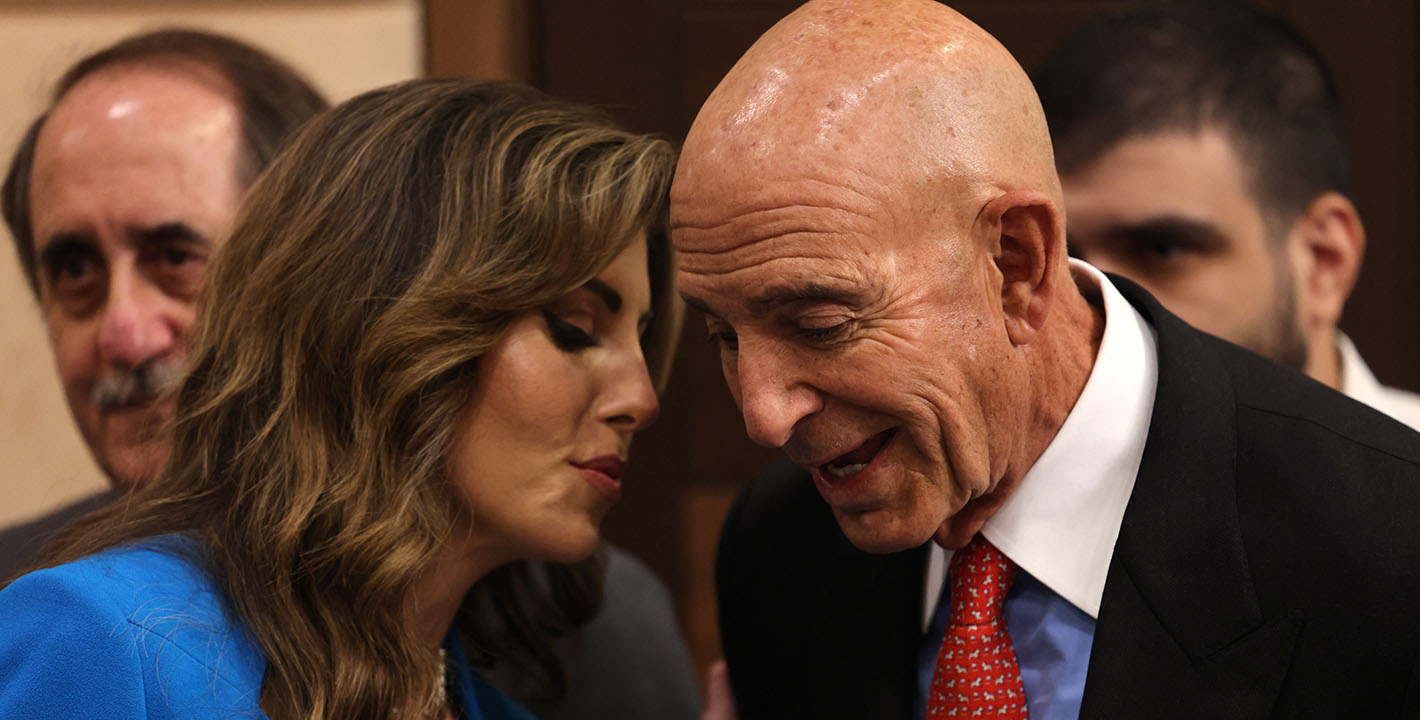Michael Young
{
"authors": [
"Michael Young"
],
"type": "commentary",
"blog": "Diwan",
"centerAffiliationAll": "dc",
"centers": [
"Carnegie Endowment for International Peace",
"Malcolm H. Kerr Carnegie Middle East Center"
],
"collections": [
"Inquiring Minds"
],
"englishNewsletterAll": "menaTransitions",
"nonEnglishNewsletterAll": "",
"primaryCenter": "Malcolm H. Kerr Carnegie Middle East Center",
"programAffiliation": "MEP",
"programs": [
"Middle East"
],
"projects": [],
"regions": [
"United States",
"North America"
],
"topics": []
}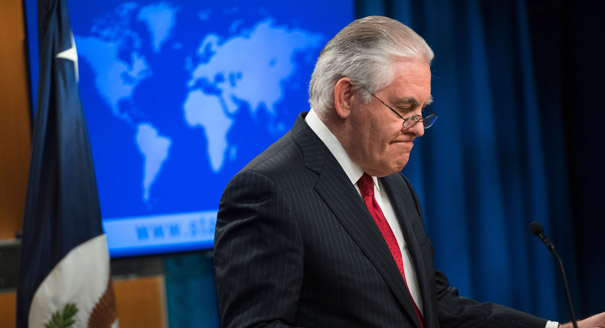
Source: Getty
Does the Departure of Rex Tillerson Signal the End for the Nuclear Deal With Iran?
A regular survey of experts on matters relating to Middle Eastern and North African politics and security.
James Dobbins | Senior fellow and distinguished chair in diplomacy and security at the Rand Corporation, former U.S. assistant secretary of state for European affairs, former envoy to Afghanistan and Pakistan
Secretary of State Rex Tillerson seems to have carried little influence with President Donald Trump, so his departure may have little impact. Michael Pompeo, Tillerson’s replacement, seems to have generally respected his professional staff at the CIA, and accepted their considered assessments, including that Iran is adhering to the Joint Comprehensive Plan of Action (JCPOA), the nuclear deal with Iran. It is premature to conclude that Pompeo will disregard the cautionary advice he will receive from his new staff at the State Department. North Korea is a much more serious threat than Iran and also a more pressing problem, one likely to dominate Pompeo’s attention from his first day in his new posting, if not before. However much Pompeo may share Trump’s view that the Iran nuclear agreement is “the worse deal ever,” he will be urged not to advocate loosening the restraints on Iran even while seeking to negotiate what will inevitably be less effective ones on North Korea.
Paul R. Pillar | Nonresident senior fellow at the Center for Security Studies, Georgetown University, served in the Central Intelligence Agency from 1977 to 2005, author of Why America Misunderstands the World.
One of the strongest of President Donald Trump’s urges in foreign policy has been to destroy the Joint Comprehensive Plan of Action (JCPOA), the nuclear deal with Iran. So far he has been restrained from doing so only by appeals from some senior advisers, including Secretary of State Rex Tillerson, who recognized that such destruction would not serve U.S. interests or the interests of nuclear nonproliferation. Tillerson’s ouster—with Trump publicly singling out policy toward the JCPOA as a point of disagreement—opens the way for Trump to act on his destructive urge.
In Mike Pompeo, Trump will have a new secretary of state who will feed rather than restrain that urge. Like Trump, Pompeo has a visceral dislike for the JCPOA, rooted in a desire to undo anything former president Barack Obama accomplished.
U.S. withdrawal from the JCPOA does not automatically preclude continuation of some version of the agreement among the other six parties. But the long arm of the U.S. Treasury will discourage European investment and trade with Iran, which may mean that Iran will not see enough economic benefit to make continuation of the agreement seem worthwhile. Iranian officials already have said that if the U.S. leaves the JCPOA, so too will Iran.
Robert Malley | President and CEO of the International Crisis Group, former White House coordinator for the Middle East, North Africa, and the Gulf region during the Obama administration
Two months are an exhausting eternity in the Trump era, but for now most everything points to a U.S. withdrawal from the Joint Comprehensive Plan of Action (JCPOA), the nuclear deal with Iran, by May 12. Even before Secretary of State Rex Tillerson’s replacement by Mike Pompeo, reasons abounded to feel this way, from the administration’s fixation on Iran to President Donald Trump’s obsession with undoing his predecessor’s legacy. But Tillerson’s ouster, Pompeo’s opposition to the deal, and Trump’s claim that differences regarding Iran motivated the change, are the clearest indications to date that the JCPOA’s fate hangs by a thread.
Europe holds keys to avoid a U.S. withdrawal or, should it occur, limit its damage. As it negotiates with Washington, Europe should be prepared to take steps that address U.S. concerns, but only if those are fully consistent with the JCPOA and only if in exchange the U.S. agrees to genuinely fulfill its economic obligations vis-à-vis Tehran. Barring that unlikely outcome, Europe should pivot to Plan B: It should seek to persuade Tehran to comply with its obligations, notwithstanding a U.S. withdrawal, by shoring up the political and economic benefits of bilateral ties between the European Union and Iran, which would be lost if Iran disregarded its commitments. In particular, Europe should try to minimize the harm caused to its businesses by secondary U.S. sanctions, invest in Iran’s economy and seek an energy partnership with Tehran. None of this will be easy—but all would be preferable to a renewed nuclear crisis and attendant regional escalation.
Richard Goldberg | Senior advisor at the Foundation for Defense of Democracies
President Donald Trump wasn’t bluffing when he threatened to leave the Joint Comprehensive Plan of Action (JCPOA) unless Europe agreed to fix the flawed nuclear deal with Iran. The appointment of Mike Pompeo as secretary of state should remove any doubt about that. Pompeo’s appointment signals that Trump is serious about bringing back America’s toughest economic sanctions, including sanctions targeting the Central Bank of Iran, unless Europe agrees to eliminate the deal’s sunset clauses, demand intrusive inspections of Iranian military sites, and tie a snapback of sanctions to any further Iranian development of nuclear-capable missiles. Pompeo’s appointment delivered a strong message to European diplomats who thought they could sweet talk Secretary of State Rex Tillerson into keeping the deal. Like Trump, Pompeo will be clear-eyed about Iran’s expanding illicit and destabilizing activities throughout the Middle East, and he will be a strong voice for rolling Iran back whenever and wherever possible.
Gary Samore | Executive director for research at Harvard University’s Belfer Center for Science and International Affairs, former member of the Secretary of Energy Advisory Board (2015–2017), former White House coordinator for arms control and weapons of mass destruction under president Barack Obama, and former special assistant and senior director for nonproliferation and export controls under president Bill Clinton
The nomination of CIA Director Mike Pompeo to replace Rex Tillerson as secretary of state clearly increases the likelihood that President Donald Trump will decide to withdraw the United States from the Joint Comprehensive Plan of Action (JCPOA), or the Iran nuclear deal, on May 12, the deadline for waiving U.S. sanctions under the JCPOA. However, the U.S. and its European allies that are party to the JCPOA (the European Union, the United Kingdom, Germany, and France) are continuing to negotiate on the president’s demand that Europe agree to join the U.S. in seeking to “fix the flaws” in the JCPOA, specifically imposing sanctions on long-range missile development, strengthening inspections at military facilities, and eliminating the sunset clauses in the JCPOA.
Reportedly, the negotiators are making progress, but remain far apart on the sunset issue because the Europeans believe that any effort to end or modify the time bound limits on Iran’s nuclear program will lead to a collapse of the JCPOA. If Washington and the European capitals reach a compromise by May 12, Trump is likely to waive U.S. sanctions against Iran for another 120 days, although he may threaten not to issue another waiver unless the other parties to the JCPOA (Russia, China, and Iran) accept the proposed fixes. If Trump is unsatisfied with the proposal offered by the Europeans, then Pompeo, the new secretary of state, is likely to recommend that the U.S. withdraw from the JCPOA, which Trump is likely to do.
About the Author

Editor, Diwan, Senior Editor, Malcolm H. Kerr Carnegie Middle East Center
Michael Young is the editor of Diwan and a senior editor at the Malcolm H. Kerr Carnegie Middle East Center.
- Iran and the New Geopolitical MomentCommentary
- A Mechanism of CoercionCommentary
Michael Young
Recent Work
Carnegie does not take institutional positions on public policy issues; the views represented herein are those of the author(s) and do not necessarily reflect the views of Carnegie, its staff, or its trustees.
More Work from Diwan
- U.S. Aims in Iran Extend Beyond Nuclear IssuesCommentary
Because of this, the costs and risks of an attack merit far more public scrutiny than they are receiving.
Nicole Grajewski
- The Jamaa al-Islamiyya at a CrossroadsCommentary
The organization is under U.S. sanctions, caught between a need to change and a refusal to do so.
Mohamad Fawaz
- Iran and the New Geopolitical MomentCommentary
A coalition of states is seeking to avert a U.S. attack, and Israel is in the forefront of their mind.
Michael Young
- All or Nothing in GazaCommentary
Implementing Phase 2 of Trump’s plan for the territory only makes sense if all in Phase 1 is implemented.
Yezid Sayigh
- A Mechanism of CoercionCommentary
Israeli-Lebanese talks have stalled, and the reason is that the United States and Israel want to impose normalization.
Michael Young

